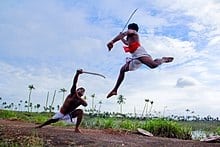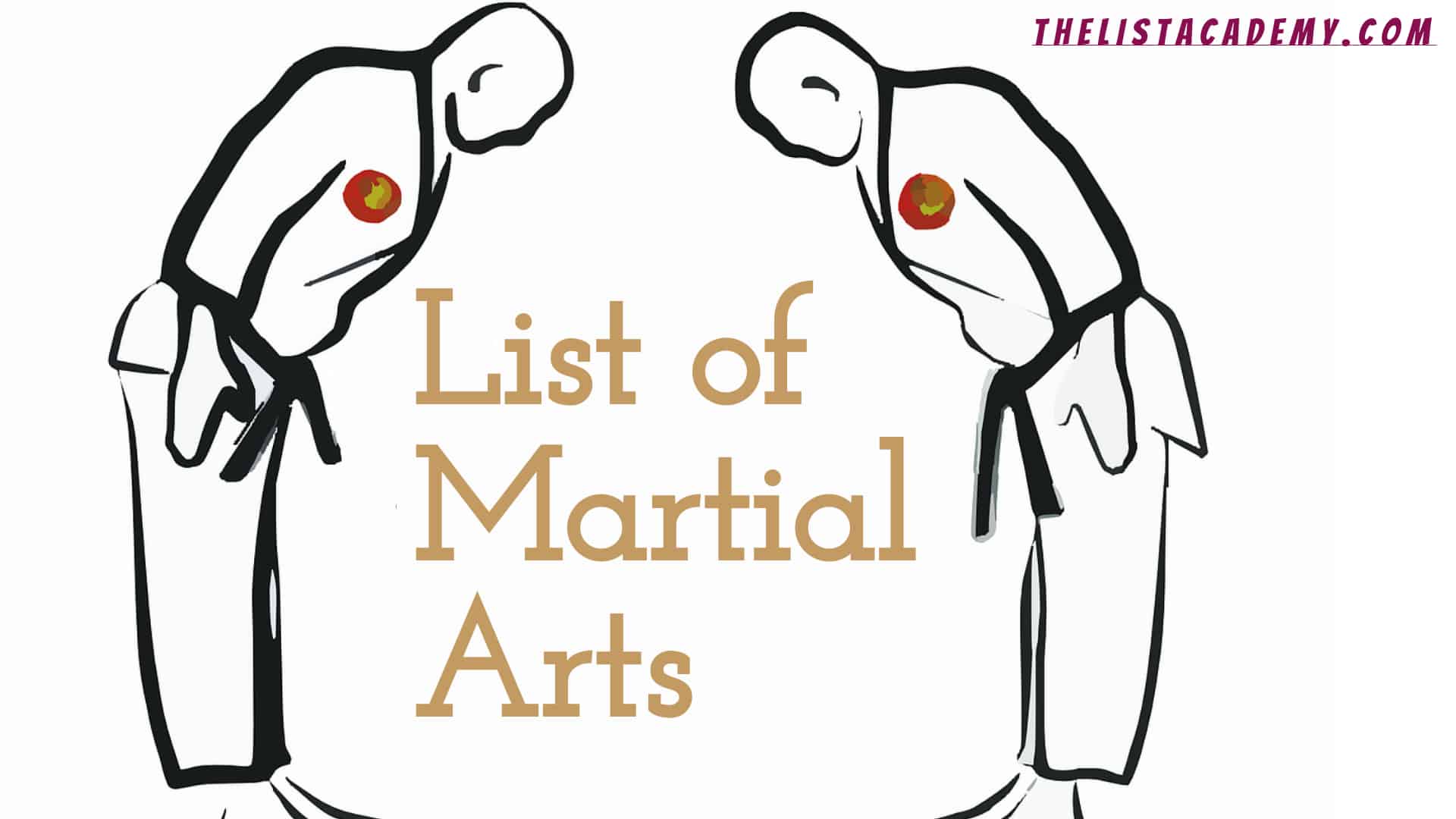
Kalaripayattu
Kalaripayattu, IPA: [kɐɭɐɾip:ɐjɐt:ɨ̆]; also known simply as Kalari, is an Indian martial art that originated in modern-day Kerala, a state on the southwestern coast of India. Kalaripayattu is known for its long-standing history within Indian martial arts. It is believed to be the oldest surviving martial art in India, with a history spanning over 3,000 years.Kalaripayattu is mentioned in the Vadakkan Pattukal, a collection of ballads written about the Chekavar of the Malabar region of Kerala. In the Vadakkan Pattukal, it is stated that the cardinal principle of Kalaripayattu was that knowledge of the art be used to further worthy causes, and not for the advancement of one’s own selfish interests. Kalaripayattu is a martial art designed for the ancient battlefield (the word “Kalari” meaning “battlefield”), with weapons and combative techniques that are unique to India.
Like most Indian martial arts, Kalaripayattu contains rituals and philosophies inspired by Hinduism. The art also bases medical treatments upon concepts found in the ancient Indian medical text, the Ayurveda. Practitioners of Kalaripayattu possess intricate knowledge of pressure points on the human body and healing techniques that incorporate the knowledge of Ayurveda and Yoga. Kalaripayattu is taught in accordance with the Indian guru-shishya system. Kalaripayattu differs from many other martial arts systems in the world in that weapon based techniques are taught first, and barehanded techniques are taught last.Elements from the yoga tradition as well as finger movements in the nata dances, were incorporated into Kalaripayattu. A number of South Asian fighting styles remain closely connected to yoga, dance and performing arts. Some of the choreographed sparring in Kalaripayattu can be applied to dance and Kathakali dancers who knew Kalaripayattu were believed to be markedly better than other performers. Some traditional Indian classical dance schools still incorporate martial arts as part of their exercise regimen.Kalaripayattu includes strikes, kicks, grappling, preset forms, weaponry and healing methods. Warriors trained in Kalaripayattu would use very light, and basic body armor, as it was difficult to maintain flexibility and mobility while in heavy armor.
Unlike other parts of India, warriors in Kerala belonged to all castes. Women in Keralite society also underwent training in Kalaripayattu, and still do so to this day. Keralite women such as Unniyarcha are mentioned in a collection of ballads from Kerala called the Vadakkan Pattukal, and are praised for their martial prowess.

